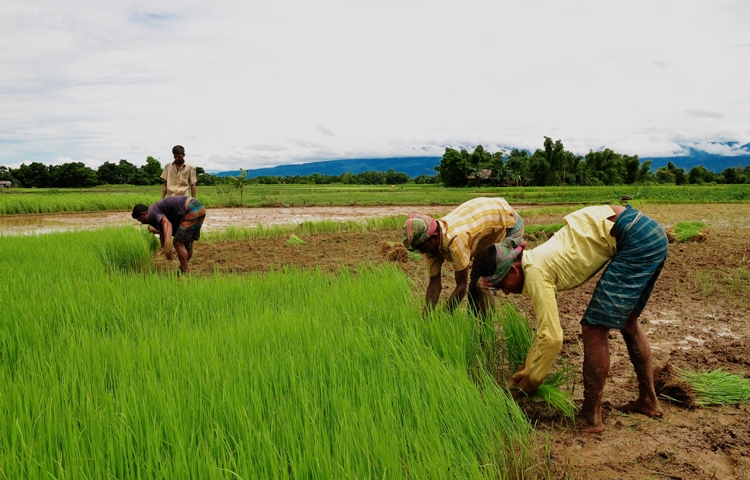Direct sowing technologies can increase Indian farmers' profits, cut pollution: Study

- Country:
- India
Alternative farming practices such as direct sowing technologies could reduce the greenhouse gas emissions from on-farm activities in Northern India by nearly 80 per cent and help lower air pollution in cities like New Delhi, according to a study. The study, published in the journal Science, shows that the farmers could also increase their profits if they stop burning their rice straw and adopt no-till practices to grow wheat.
Researchers, including those from International Maize and Wheat Improvement Center (CIMMYT) in Mexico, compared the costs and benefits of 10 distinct land preparation and sowing practices for northern India's rice-wheat cropping rotations, which are spread across over four million hectares. The direct seeding of wheat into unplowed soil and shredded rice residues was the best option -- it raises farmers' profits through higher yields and savings in labour, fuel, and machinery costs.
To quickly and cheaply clear their fields to sow wheat each year, farmers in northern India burn an estimated 23 million tonnes of straw from their rice harvests, according to researchers, including those from the Indian Council of Agricultural Research (ICAR). Regulations are in place in India to reduce agricultural fires but burning continues because of implementation challenges and lack of clarity about the profitability of alternate, no-burn farming, they noted.
To sow wheat directly without ploughing or burning rice straw, farmers need to purchase or rent a tractor-mounted implement known as the "Happy Seeder," as well as attach straw shedders to their rice harvesters. Leaving straw on the soil as mulch helps capture and retain moisture and also improves soil quality, according to ML Jat, CIMMYT Principal Scientist, a co-author of the study.
The study demonstrates that it is possible to reduce air pollution and greenhouse gas emissions in a way that is profitable to farmers and scalable. It shows that Happy Seeder-based systems are on average 10-20 per cent more profitable than straw burning options.
"Our study dovetails with 2018 policies put in place by the government of India to stop farmers from burning, which includes a USD166 million subsidy to promote mechanisation to manage crop residues within fields," said Priya Shyamsundar from US-based charity The Nature Conservancy. Shyamsundar, the first author of the study, noted that relatively few Indian farmers currently sow their wheat using the Happy Seeder but manufacturing of the Seeder had increased in recent years.
"Less than a quarter of the total subsidy would pay for widespread adoption of the Happy Seeder if aided by government and NGO support to build farmer awareness and impede burning," she said. "With a rising population of 1.6 billion people, South Asia hosts 40 per cent of the world's poor and malnourished on just 2.4 per cent of its land," said Jat.
"Better practices can help farmers adapt to warmer winters and extreme, erratic weather events such as droughts and floods, which are having a terrible impact on agriculture and livelihoods. "In addition, India's efforts to transition to more sustainable, less polluting farming practices can provide lessons for other countries facing similar risks and challenges," he said.
Researchers noted that in November 2017, more than 4,000 schools closed in Delhi due to seasonal smog. This smog increases during October and November when fields are burned.
It causes major transportation disruptions and poses health risks across northern India, including Delhi, a city of more than 18 million people. Some of these problems can be resolved by the use of direct sowing technologies in northwestern India, researchers said.
(This story has not been edited by Devdiscourse staff and is auto-generated from a syndicated feed.)
ALSO READ
Enemies took advantage, terrorism spread whenever there were weak, unstable governments in country: PM Modi in Uttarakhand's Rishikesh
We will only support leaders who genuinely champion Maratha quota, government deceived us: Jarange
Under strong Modi government, our forces are killing terrorists on their own turf: PM Modi at Uttarakhand rally
Italy government chides Stellantis over Polish-made Alfa Romeo 'Milano'
Two senior Delhi government officials face FIR following Uttarakhand court order










